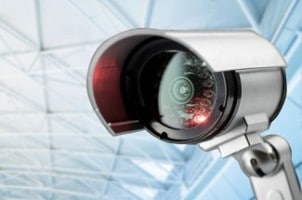EDITOR’S NOTE: Loss prevention leaders are looking for solutions that are both affordable and capable of meeting the escalating demands of the business, but must also factor the potential investments of training and development. LP Magazine recently met with Gerald Becker, vice president for physical security at USS, a leading integrator of IP video and access control systems. As a widely recognized expert on security technologies, we sat down with him to chat about some of the additional challenges that often accompany implementing new video and access control systems.
You’ve worked with the LP departments for many different companies to upgrade their old analog systems to modern IP-based systems, like video and access control. What is the most common challenge you’ve seen them face?
Training is always at the top of that list. You can deploy the most advanced system in the world with all the bells and whistles, but if your employees don’t know how to use it to its fullest extent, that system is useless to you. As a result your ROI can go right out the window.
Does that mean that the new IP video systems are much more complicated than the analog CCTV?
Not necessarily more complicated, but they certainly have a lot more options and features. In the old days of analog, there were just a few buttons—Record, Play, Rewind, Fast Forward. But with a software-based enterprise system, you can have dozens of features and settings. That’s really why modern companies are deploying IP systems in the first place—better analytics, better insight, more capabilities, quicker decision making. The challenge is to go from having employees who are used to a few simple commands to having them understand and grow comfortable with a system that is feature-rich.
How do you go about doing that?
Well, the starting point is to determine what kind of training is available for the platform you are considering. Nowadays there’s a myriad of solutions and devices with lots of different ways to set up an enterprise system. If you are interviewing several integrators—your deployment partners—quiz them about what they will do after the system has been installed.
Will they train your employees? How? And how quickly can you expect for your employees to be fully comfortable with their new system? When you are investing a lot of money into something, you want to see the ROI as quickly as you can. But there is no ROI if your employees are only capable of pushing the handful of buttons they already know—Record, Play, Rewind, Fast Forward.
Can’t a company that’s buying the solution do the training on its own?
Sure, but who has the time for that? Besides, the people that know your system the best are those that are selling it to you and installing it for you. For example, USS recently participated in a deployment with a large retail chain. Eight different stores had different systems deployed, and USS had one of those stores to set up and train. Once the work was done, our retail partner told us, “Our employees only know how to use the system in one of these eight stores—the one you set up.” I wasn’t surprised. We put a great deal of emphasis on training because your whole ROI really depends on that.
What are some key questions to ask the solution provider?
What will it take for my employees to be able to fully take advantage of the solution? What does your training program look like; is it portal, module, online, on-site? Do you provide different levels of training; for example LP folks, marketing, security, operations, et cetera? What kind of service or training agreements are available to us?
Really, the ultimate question is, after you’ve purchased the systems, will you still have the help you need? And of course, the answer you are looking for is a firm and unequivocal, “Yes.”
